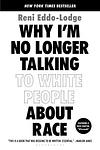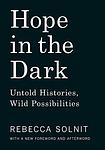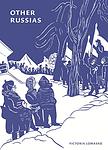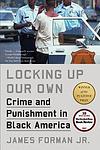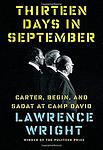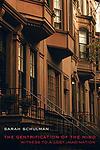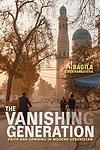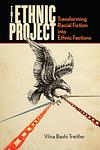The Greatest "Nonfiction, Political" Books Since 2000
Click to learn how this list is calculated.
This list represents a comprehensive and trusted collection of the greatest books. Developed through a specialized algorithm, it brings together 305 'best of' book lists to form a definitive guide to the world's most acclaimed books. For those interested in how these books are chosen, additional details can be found on the rankings page.
Genres
The "Political" category of books encompasses works that explore the theory, practice, and history of government and politics. These books may cover topics such as political ideologies, political systems, political institutions, political movements, and political leaders. They may also examine the relationship between politics and other areas of society, such as economics, culture, and international relations. Political books can be both informative and thought-provoking, offering readers insights into the complexities of the political world and the challenges of governing in a democratic society.
Countries
Date Range
Reading Statistics
Click the button below to see how many of these books you've read!
Download
If you're interested in downloading this list as a CSV file for use in a spreadsheet application, you can easily do so by clicking the button below. Please note that to ensure a manageable file size and faster download, the CSV will include details for only the first 500 books.
Download-
51. Gulag: A History by Anne Applebaum
"Gulag: A History" provides an in-depth historical account of the Soviet Union's forced labor camp system, known as the Gulag. The book explores the inception of these camps during the reign of Vladimir Lenin, their expansion under Joseph Stalin, and their eventual decline and closure. It also delves into the daily lives of the prisoners, their hardships, and the brutal conditions they endured. The book is based on a wealth of archival material, personal interviews, and memoirs, offering a comprehensive understanding of one of the darkest periods in human history.
The 8076th Greatest Book of All Time -
52. Why I'm No Longer Talking To White People About Race by Reni Eddo-Lodge, Ana Camallonga
The book in question is a powerful and thought-provoking exploration of race, structural racism, and the black experience in a predominantly white society. It delves into the historical roots of racial inequality, the failures of the mainstream feminist movement to address intersectionality, and the ongoing challenges faced by people of color in the realms of politics, employment, and the justice system. The author articulately expresses her frustration with the lack of understanding and denial of systemic racism by white individuals, which has led her to the titular conclusion. Through personal narrative and incisive analysis, the book serves as a call to action for meaningful conversation and systemic change.
The 8109th Greatest Book of All Time -
53. Malcolm X: A Life of Reinvention by Manning Marable
This biography provides an in-depth exploration of Malcolm X's life, from his early days of crime and imprisonment to his transformation into one of the most influential African-American leaders. It delves into his complex relationships, his evolving political beliefs, and his controversial views on race and religion. The book also examines his assassination, shedding new light on the circumstances around his death and the conspiracy theories that followed.
The 8222nd Greatest Book of All Time -
54. A Brief History Of Neoliberalism by David Harvey
This book provides a critical examination of neoliberalism, tracing its origins and development from the late 20th century to its pervasive influence on global economics and politics. The author argues that neoliberalism, a doctrine advocating for free markets, deregulation, and reduction in government spending, has concentrated wealth and power in the hands of a few, leading to increased social inequality and environmental degradation. Through a detailed analysis of various countries' experiences, the book highlights the consequences of neoliberal policies and calls for a reevaluation of the current economic paradigm to address its shortcomings and create a more equitable and sustainable future.
The 8229th Greatest Book of All Time -
55. Arguably: Essays by Christopher Hitchens
"Arguably: Essays" is a collection of essays written by Christopher Hitchens, covering topics ranging from politics, literature, and religion to popular culture, sports, and travel. Hitchens was known for his sharp wit, critical thinking, and fearless approach to controversial issues, and this book showcases his best writing over the years. The essays are thought-provoking, insightful, and often humorous, making for an engaging read that challenges readers to think deeply about the world around them.
The 8255th Greatest Book of All Time -
56. Hope in the Dark by Rebecca Solnit
"Hope in the Dark" is a powerful and inspiring exploration of the transformative power of hope in times of uncertainty. The book challenges the notion that hope is a passive emotion, instead arguing that it is an active process that can inspire change and action. Using a series of historical examples, the author demonstrates how hope has been a driving force in social and political movements, and encourages readers to remain hopeful, even in the face of seemingly insurmountable challenges.
The 8355th Greatest Book of All Time -
57. Bad Blood by John Carreyrou
This book delves into the riveting true story of a Silicon Valley startup that promised to revolutionize the medical industry with a groundbreaking device that could perform a full range of laboratory tests using just a few drops of blood. However, the company's charismatic founder's ambition and the immense pressure to succeed led to one of the most notorious cases of corporate fraud in recent history. Through extensive reporting and interviews, the narrative exposes how the company's misleading claims, toxic workplace culture, and unethical business practices put patients at risk, eventually leading to its dramatic downfall. The investigation into the company's practices not only captivated the nation but also raised critical questions about innovation, integrity, and regulation in the tech industry.
The 8357th Greatest Book of All Time -
58. The Wisdom Of Crowds by James Surowiecki
This book explores the concept that large groups of people are smarter than an elite few, no matter how brilliant, and are better at solving problems, fostering innovation, coming to wise decisions, even predicting the future. The author delves into a wide range of disciplines, including popular culture, psychology, and behavioral economics to demonstrate how this concept works in the real world. The book also examines how group decisions can go wrong and provides insights on how to prevent these errors.
The 8400th Greatest Book of All Time -
59. The Diary Of A Gulag Prison Guard 1935 6 by Ivan Chistyakov
"The Diary Of A Gulag Prison Guard 1935-6" is a chilling and harrowing memoir that provides a firsthand account of the atrocities and cruelty witnessed by Ivan Chistyakov during his time as a guard in a Soviet Gulag prison. Through his detailed entries, Chistyakov reveals the dehumanizing conditions, brutal punishments, and constant fear that both prisoners and guards endured within the oppressive Soviet regime. This haunting narrative serves as a stark reminder of the dark realities of the Gulag system and the lasting impact it had on the lives of countless individuals.
The 8404th Greatest Book of All Time -
60. Enlightenment Now by Steven Pinker
The book presents a comprehensive case for optimism in the modern era, arguing that humanity has made significant progress in various aspects such as health, prosperity, safety, peace, knowledge, and happiness, largely due to the values of the Enlightenment—reason, science, humanism, and progress. The author challenges the pervasive sense of pessimism in contemporary discourse and defends the scientific mindset and rational thinking as the driving forces behind improvements in human well-being. By analyzing a wealth of data and trends, the book encourages readers to appreciate the progress achieved and to continue embracing the Enlightenment principles to address current challenges and further advance the human condition.
The 8408th Greatest Book of All Time -
61. Can't Stop Won't Stop by Jeff Chang
The book provides a comprehensive history of hip-hop culture, tracing its roots from the streets of the Bronx in the 1970s to its global influence in the 21st century. It explores the socio-political and economic conditions that gave rise to the movement, highlighting key figures, events, and the evolution of its music, art, and dance. Through detailed narratives and interviews, the book delves into how hip-hop has been a voice for marginalized communities, addressing issues of race, class, and identity, while also examining its commercialization and impact on mainstream culture.
The 8468th Greatest Book of All Time -
62. After The Music Stopped: The Financial Crisis, The Response, And The Work Ahead by Alan S. Blinder
After the Music Stopped is a comprehensive analysis of the 2008 financial crisis and its aftermath. Alan S. Blinder, a former vice chairman of the Federal Reserve, examines the causes of the crisis, the government's response to it, and the ongoing challenges facing the global economy. Blinder argues that the crisis was caused by a combination of factors, including lax regulation, excessive risk-taking, and a housing bubble. He also explores the various policy responses to the crisis, including the Troubled Asset Relief Program (TARP) and the Dodd-Frank Wall Street Reform and Consumer Protection Act. Finally, Blinder offers recommendations for preventing future financial crises and ensuring long-term economic stability.
The 8477th Greatest Book of All Time -
63. Days Of Fire: Bush And Cheney In The White House by Peter Baker
"Days of Fire" is a comprehensive account of the presidency of George W. Bush and his vice president, Dick Cheney, during their eight years in the White House. Peter Baker, a journalist who covered the Bush administration for The New York Times, provides a detailed analysis of the key events and decisions that shaped their time in office, including the 9/11 attacks, the wars in Iraq and Afghanistan, Hurricane Katrina, and the financial crisis. Through interviews with key players and extensive research, Baker offers a nuanced portrait of two men who were both praised and vilified for their leadership and legacy.
The 8477th Greatest Book of All Time -
64. Other Russias by Victoria Lomasko
"Other Russias" is a powerful and thought-provoking graphic novel that offers an intimate and unfiltered glimpse into the lives of marginalized individuals and communities in contemporary Russia. Through her stunning illustrations and poignant interviews, Victoria Lomasko sheds light on the struggles, hopes, and resilience of diverse groups such as LGBTQ+ activists, migrant workers, political dissidents, and the forgotten voices of rural communities. This eye-opening book challenges stereotypes and provides a humanizing portrayal of those who are often overlooked or silenced in Russian society.
The 8518th Greatest Book of All Time -
65. Locking Up Our Own: Crime and Punishment in Black America by James Forman
This book delves into the complex and controversial issue of mass incarceration in the United States, particularly within the African American community. It explores the historical, social, and political factors that contributed to the high rates of black imprisonment. The author examines the role of African American leaders in advocating for tough-on-crime policies and their unintended consequences. The book is a thought-provoking analysis of the intersection of race, crime, and justice in America.
The 8518th Greatest Book of All Time -
66. Thinking The Twentieth Century by Tony Judt, Timothy Snyder
This book is a profound intellectual history of the 20th century, presented through a series of engaging conversations between two eminent historians. It explores the major ideological currents of the century, including Marxism, socialism, liberalism, and fascism, while also delving into the personal experiences and reflections of one of the authors, who was facing a terminal illness during the discussions. The dialogue format allows for a dynamic exploration of how historical events, personal experiences, and intellectual debates have shaped our understanding of the modern world. Through these conversations, the book offers insights into the role of intellectuals and politicians in navigating the complex political landscapes of the 20th century, making it a compelling read for anyone interested in history, politics, and the power of ideas.
The 8539th Greatest Book of All Time -
67. Slavery by Another Name by Douglas A. Blackmon
The book explores the concept of "neoslavery," which entrapped thousands of African Americans in the South in a system of forced labor after the Civil War. This system was perpetuated by local laws, racial prejudice, and economic manipulation, where black men were arrested on false charges, then sold to companies as cheap labor. The book illuminates the forgotten history of this "age of neoslavery" that persisted into the 20th century and its profound impact on the racial disparities that exist today.
The 8582nd Greatest Book of All Time -
68. Thirteen Days In September: Carter, Begin, And Sadat At Camp David by Lawrence Wright
"Thirteen Days In September" by Lawrence Wright is a detailed account of the historic peace negotiations that took place between President Jimmy Carter, Israeli Prime Minister Menachem Begin, and Egyptian President Anwar Sadat at Camp David in September 1978. The book provides a behind-the-scenes look at the intense negotiations and personal dynamics between the leaders, as they worked to reach a peace agreement that would end decades of conflict in the Middle East. Wright's narrative is a gripping and informative account of a pivotal moment in modern history.
The 8595th Greatest Book of All Time -
69. The Gentrification of the Mind by Sarah Schulman
"The Gentrification of the Mind" is a critical examination of the impact of the AIDS epidemic on American society and culture, particularly in relation to urban gentrification. The author argues that the loss of a generation of artists, writers, and thinkers due to the AIDS crisis led to a homogenization of culture and thought, similar to the way gentrification leads to a homogenization of urban neighborhoods. The book is a powerful critique of the erasure of diverse voices and experiences, and a call to remember and honor the lost history of those affected by the epidemic.
The 8600th Greatest Book of All Time -
70. Threatening Anthropology by David H. Price
"Threatening Anthropology" delves into the chilling impact of McCarthy-era surveillance and repression on the field of anthropology in the United States during the mid-20th century. The book meticulously examines how government scrutiny and accusations of subversion or communist sympathies led to career disruptions, personal betrayals, and significant shifts in the research and methodologies of anthropologists. Drawing on extensive FBI documents, the narrative reveals the broader consequences of political fear on academic freedom and intellectual discourse, highlighting the struggles of targeted scholars and the chilling effect on their work and lives.
The 8609th Greatest Book of All Time -
71. Nixonland by Rick Perlstein
"Nixonland" is a detailed historical account of the political and social climate in America from the mid-1960s to mid-1970s, focusing on the rise and fall of President Richard Nixon. The book explores the divisive issues of the time, including the Vietnam War, civil rights, and the Watergate scandal, and how Nixon's manipulation of public fears and prejudices led to a new era of American conservatism. It also delves into the impact of these events on American politics and society, creating a landscape that still resonates today.
The 8964th Greatest Book of All Time -
72. The Vanishing Generation: Faith And Uprising In Modern Uzbekistan by Bagila Bukharbayeva
"The Vanishing Generation: Faith And Uprising In Modern Uzbekistan" explores the complex relationship between faith, politics, and social change in contemporary Uzbekistan. Through in-depth interviews and extensive research, the author delves into the lives of young Uzbeks who are navigating the challenges of religious identity, political repression, and the desire for societal transformation. This thought-provoking book sheds light on the struggles and aspirations of a generation caught between tradition and modernity in a rapidly changing society.
The 9029th Greatest Book of All Time -
73. The Spirit Level by Richard Wilkinson
This book presents a compelling argument that income inequality within a society leads to a wide range of social and health problems. The authors use a variety of statistical data from different countries to show that societies with more equal distribution of incomes have better health, fewer social problems such as violence, drug abuse, and mental illness, and are more cohesive than ones in which the gap between the rich and poor is greater. The book challenges the notion that societal problems are inevitable in modern, developed societies and offers a new way of understanding how we can improve the quality of life for all.
The 9036th Greatest Book of All Time -
74. The Ethnic Project by Vilna Bashi Treitler
The book in question explores the complex dynamics of race and ethnicity in the United States, examining how various immigrant groups have navigated and shaped their identities within the country's racial hierarchy. It delves into the historical and sociological processes that have led to the assimilation of certain ethnic groups into the category of "whiteness," while others remain marginalized. Through a critical analysis of these ethnic projects, the book reveals the strategies employed by different groups to gain social acceptance and economic mobility, and how these efforts have contributed to the perpetuation of racial inequalities. The narrative challenges readers to reconsider the constructs of race and ethnicity and their impact on American society.
The 9058th Greatest Book of All Time -
75. Stasiland by Anna Funder
This non-fiction work delves into the haunting legacy of the Stasi, the secret police of the former East Germany, through a series of personal narratives and interviews. The author explores the pervasive surveillance and oppression that characterized the German Democratic Republic, weaving together the stories of those who resisted the regime, those who worked for it, and those who were its victims. The book serves as a poignant examination of the human spirit under the strain of totalitarianism, revealing the scars left by a society where privacy was eradicated and trust was a commodity few could afford.
The 9078th Greatest Book of All Time
Reading Statistics
Click the button below to see how many of these books you've read!
Download
If you're interested in downloading this list as a CSV file for use in a spreadsheet application, you can easily do so by clicking the button below. Please note that to ensure a manageable file size and faster download, the CSV will include details for only the first 500 books.
Download
